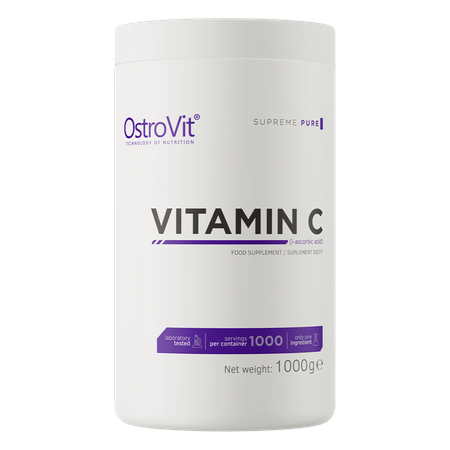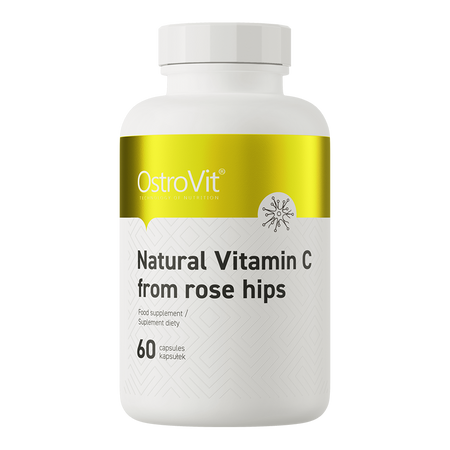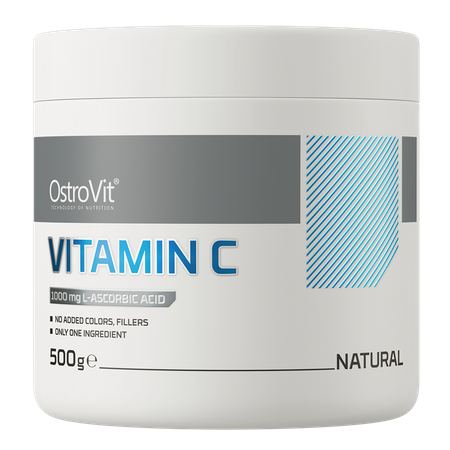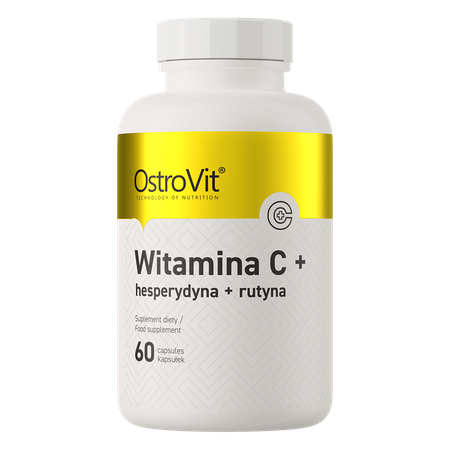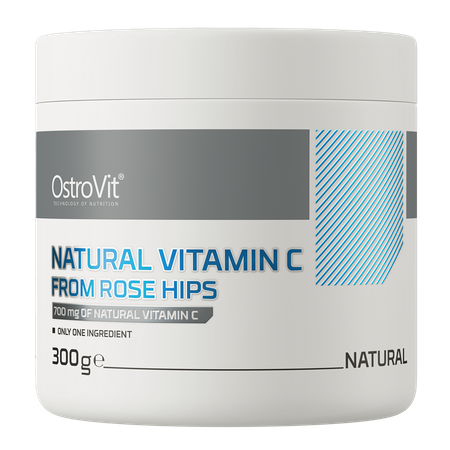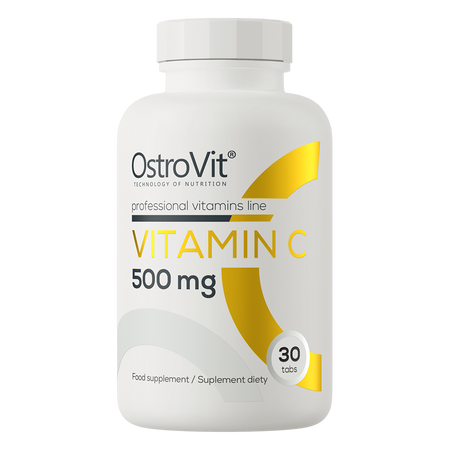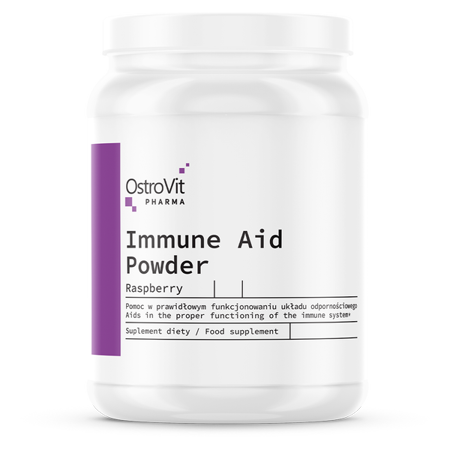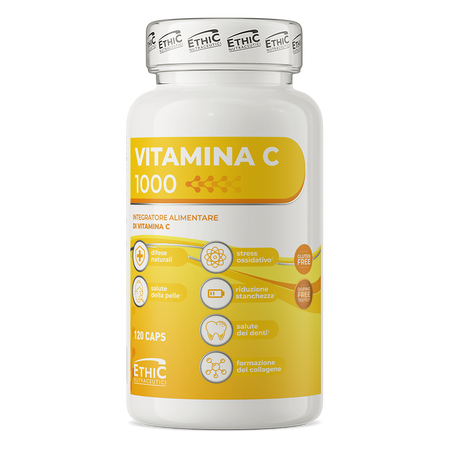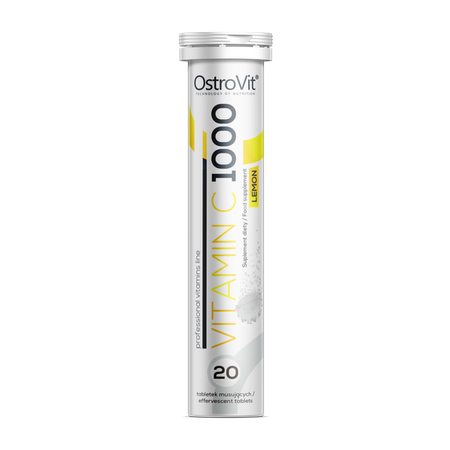Vitamin C
Vitamin C is a substance necessary for the proper functioning of the body. Although it is known primarily for its positive effect on the immune system, it also performs other important functions in the body, i.a. it enables collagen synthesis or facilitates the absorption of iron.
The body cannot synthesize ascorbic acid on its own and its deficiencies can lead to serious consequences. Therefore, it is extremely important to cover the demand for this ingredient with your daily diet or with the help of supplements.
What is Vitamin C?
Vitamin C, also known as ascorbic acid, is a water-soluble vitamin, the excess of which is removed from the body with urine and sweat.
The human body does not produce vitamin C on its own, so it is extremely important to provide it with a diet or supplements.
Ascorbic acid is a name that comes from the Latin word scorbutus, meaning scurvy, i.e. a multi-organ disease caused by a deficiency of vitamin C in the body.
Sources of vitamin C in food
Vitamin C is found in many foods, mainly fruits and vegetables, but it is a very sensitive compound that oxidizes under the influence of high temperature. Light also has a harmful effect on it.
Good sources of ascorbic acid include:
- wild rose,
- acerola,
- blackcurrant,
- parsley,
- paprika,
- citrus fruit - lemons, oranges, tangerines,
- brussels sprouts,
- blackberries.
Properties and role of vitamin C
Vitamin C is known primarily as a supplement that supports the body's immunity. This is a correct association, because ascorbic acid actually has a positive effect on the immune system. Although during the course of the disease, vitamin C does not alleviate the symptoms of infection, taken prophylactically allows you to shorten the duration of colds and at the same time can reduce the frequency of illness.
However, the effect of ascorbic acid is much wider... So why is vitamin C important for health?
Ascorbic acid is a powerful antioxidant that has antioxidant properties. It fights free radicals, reduces oxidative stress, and at the same time can slow down the aging process.
In addition, it is a coenzyme that participates in the formation of transverse bonds of tropocollagen, i.e. participates in the synthesis of collagen. Thus, it can affect the proper condition of the connective tissue.
Vitamin C in the human body is also an activator of many enzymes, participates in the synthesis of corticosteroids and some neurotransmitters, as well as in the transformation of tyrosine. In addition, it can facilitate the wound healing process and enable strengthening and sealing of blood vessels.
Ascorbic acid facilitates the absorption of iron and calcium, can lower blood pressure, and also regulate the process of absorption of microorganisms by leukocytes. Vitamin C can also strengthen teeth and gums, and fight bacteria that contribute to the development of tooth decay.
Vitamin C in the athlete's diet
Vitamin C is also extremely important in the lives of physically active people. During increased effort, ascorbic acid may reduce cortisol levels and promote the protection of muscle fibers against protein breakdown.
In addition, vitamin C has the ability to flush lactic acid from the muscles, and thus can prevent the formation of soreness after training. It also promotes faster regeneration, can accelerate wound healing and improve the absorption of minerals necessary for the proper functioning of the athlete's body.
The need for vitamin C
The need for vitamin C depends on gender, age and physiological condition.
Increased demand for vitamin C occurs among athletes during prolonged and heavy physical exertion, as well as among the elderly, smokers, among diabetics, pregnant and lactating women. Larger amounts of vitamin C in the diet are also indicated during vomiting and intestinal dysfunction, as well as in the group of people exposed to long-term stress.
Among men, the daily demand for ascorbic acid is 90 mg, while among women - 75 mg. Children, depending on age and gender, should take between 40 and 75 mg of vitamin C per day, and pregnant women 80-85 mg each day. Also during feeding, the demand for vitamin C is higher and amounts to 115-120 mg / day.
Vitamin C deficiency
The characteristic symptoms of vitamin C deficiency in the body include phenomena such as:
-
impeded wound healing,
-
decrease in the body's immunity,
-
swelling and soreness of the joints,
-
muscle aches,
-
weakening of blood vessels,
-
tendency to bruise,
-
general weakness,
-
bleeding gums,
-
infections and mucositis.
Insufficient supply of vitamin C in the diet can contribute to the weakening of capillaries and lead to the development of anemia. What's more, too low a level of the ingredient can contribute to changes in bones and cartilages.
Ascorbic acid deficiency can cause a disease called scurvy, a multi-organ disorder that manifests itself as inflammatory hypertrophy of the gums, weakness and shortness of breath. Scurvy can cause teeth to fall out - even healthy ones.
Currently, scurvy is extremely rare, but vitamin C deficiency can often be observed among smokers.
Excess vitamin C
Ascorbic acid is a water-soluble substance. Thus, the excess compound is excreted from the body with urine and sweat, and not (as in the case of fat-soluble vitamins) stored in the body.
This makes exceeding the demand for ascorbic acid extremely difficult. However, excessive consumption of vitamin C can contribute to symptoms such as gastrointestinal disorders, i.e. abdominal pain, vomiting, nausea and diarrhea, as well as manifest as a skin rash.
An overdose of vitamin C may also contribute to acidification of urine, and thus increase the risk of kidney stones.
Left-handed or right-handed vitamin C?
In various sources you can find information that left-handed vitamin C is better than right-handed.
The name of vitamin C, i.e. L-ascorbic acid, may be misleading. However, the letter L does not mean left-handedness, but only the chemical structure, and more precisely the configuration of the carbon atom in the side chain, and the properties of the substance.
Although the hydroxyl group L-ascorbic acid is on the left, it is a dextrorotatory substance, because the polarized light turns to the right.
The left- and right-handedness of a substance is due to its optical activity. It consists in twisting the light beam clockwise.
W przypadku kwasu askorbinowego, niezależnie od konfiguracji cząsteczki, do czynienia mamy jedynie z prawoskrętnością. Nie istnieje witamina C lewoskrętna.
Vitamin C supplementation - when is it recommended?
Vitamin C must be supplied to the body with the diet, because the body cannot synthesize it on its own. Therefore, it is extremely important to use a varied, balanced diet rich in this micronutrient.
In some cases, there is an increased demand for ascorbic acid, incl. among athletes, people exposed to long-term stress or among diabetics. Then, in addition to a healthy diet, it is also recommended to consider additional supplementation.
It is also worth taking vitamin C in the form of a supplement in autumn and winter, when the risk of infection is greater, to protect the body from colds.
It should be remembered that excess ascorbic acid is removed from the body, therefore the risk of exceeding the demand for this ingredient is small.

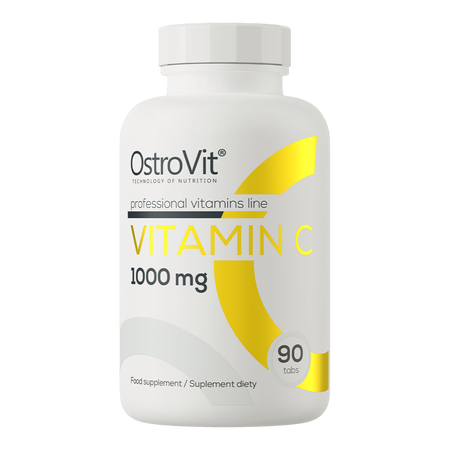
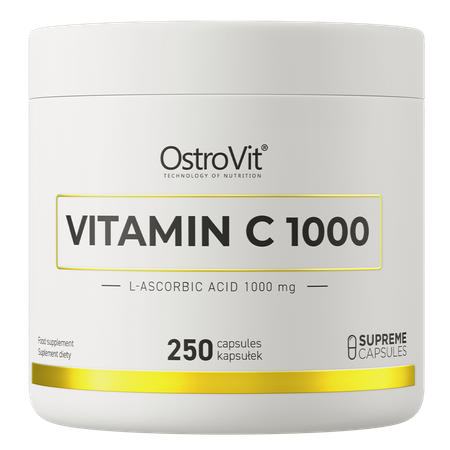
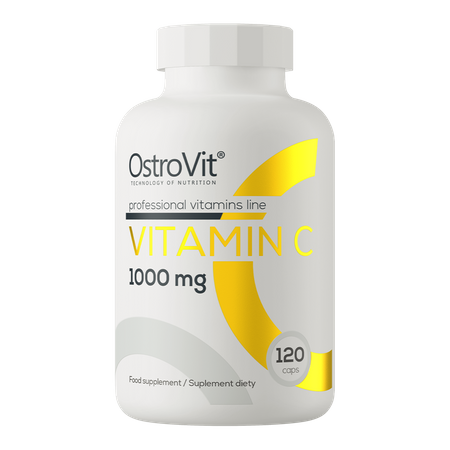
 Bestseller
Bestseller
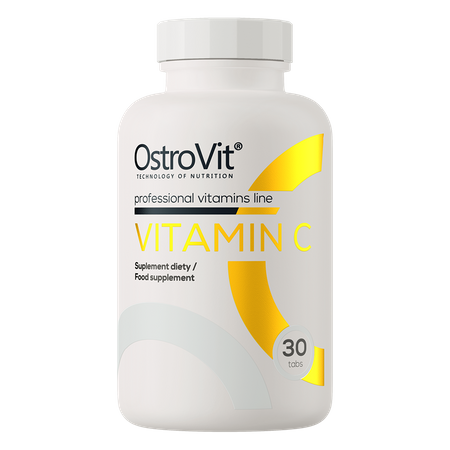
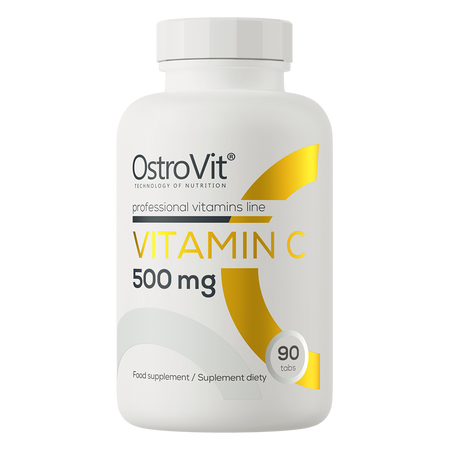
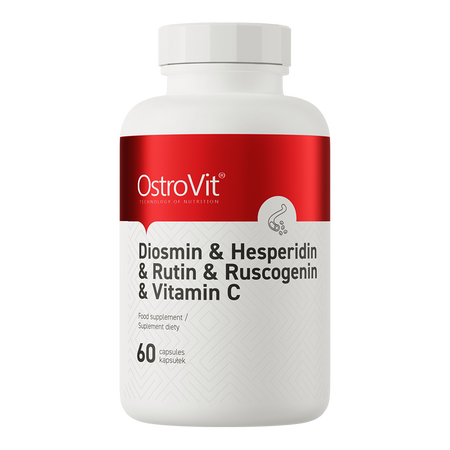
 New
New